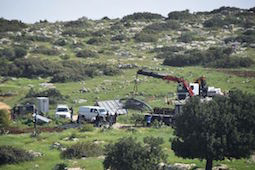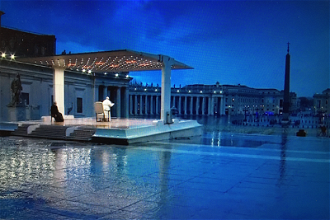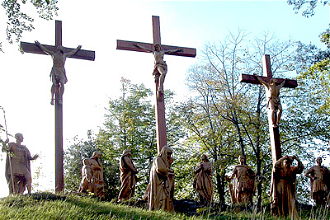Palestine: Israelis demolish emergency Coronavirus clinic

Image: 'Aref Daraghmeh (B'Tselem)
Source: Btselem, WAFA
Israeli forces entered a Palestinian village in the northern Jordan Valley on Thursday and confiscated materials being used to build an emergency clinic to deal with people affected by the Coronavirus.
'Israeli Civil Administration' officials came to the village of Khirbet Ibziq with a military escort, bulldozer and two trucks equipped with cranes to demolish the community clinic and emergency housing, Israeli human rights monitor Btselem reports.
The group reported that Israeli officials seized poles and sheeting designated to form eight tents, two for a field clinic, two for a mosque, and four for emergency housing for people evacuated from their homes. A power generator, as well as supplies of sand, cement and cinder blocks to be used for the floor of the tents, were also confiscated.
Btselem said the villagers were building an emergency facility to deal with the COVID-19 crisis which has paralysed large parts of the southern West Bank. There are 91 confirmed cases so far in the Palestinian territories, with one death reported on Wednesday.
Btselem commented on Facebook: "Shutting down a first-aid community initiative during a health crisis is an especially cruel example of the regular abuse inflicted on these communities, and it goes against basic human and humanitarian principles during an emergency."
The Jordan Valley covers an area of about 1.6 million dunams (1,600 km2) and constitutes around 30 percent of the total occupied West Bank. According to a previous government report, the Valley includes about 280,000 dunams of arable land, 50,000 of which are still used by Palestinians and 27,000 by illegal Jewish settlers.
The majority of the Jordan Valley is under full Israeli military control, despite being within the West Bank. Meanwhile, at least 44 percent of the total land in the Jordan Valley has been taken over by Israeli forces for military purposes and training exercises.
With just 1.23 beds per 1,000 people, 2,550 doctors, less than 20 intensive care specialists and less than 120 ventilators in all public hospitals, the occupied West Bank is facing a public health disaster if the authorities do not contain the spread on COVID-19.
In Gaza, the situation looks even worse. One of the most densely populated areas in the world, 97 per cent of the water is undrinkable, the sewage system is broken, there are long power cuts every day, much of the population is suffering from malnutrition and there is a desperate shortage of doctors and nurses. Hospitals lack about 40 per cent of essential basic medicines and medical supplies.
The 2018 decision of the Trump administration to stop funding for the United Nations Relief and Works Agency (UNRWA) has affected the agency's ability to provide healthcare or bring doctors to Gaza.
Human rights groups are appealing for Israel to give access to its healthcare system to Palestinians, or at least stop blocking medical aid.
A recent video that went viral on social media showed a Palestinian worker clearly unwell and struggling to breath at an Israel checkpoint near Beit Sira village. His Israeli employer had called the police after seeing that he was sick. They picked him up and dumped him at the checkpoint.
Meanwhile on Saturday, Israeli settlers cut down 300 olive trees in Palestinian land in the south of the West Bank, near Bethlehem.
Hasan Breijieh, from the Anti-Wall, Anti-Settlements Commission, told the Palestinian news agency WAFA that the settlers cut the trees in an area near an illegal settlement between the Palestinian cities of Bethlehem and Hebron.
He said the settlers are taking advantage of the Coronavirus lockdown on the Bethlehem governorate to cut trees in Palestinian lands, as they have been doing in villages such as al-Khader, Wadi Fukin and Wadi Rahhal.
As of Saturday night, in the West Bank 99 cases of Coronavirus have been diagnosed and one women in her 60s has died. In Gaza nine cases have been diagnosed. In Israel 4,247 have tested positive, most have had mild cases of the disease but 15 patients have died and 74 are in serious condition.
See also: ICN 27 May 2020: Bishop appeals for people in Holy Land affected by COVID-19
LINK
Btselem - www.facebook.com/btselem/


















